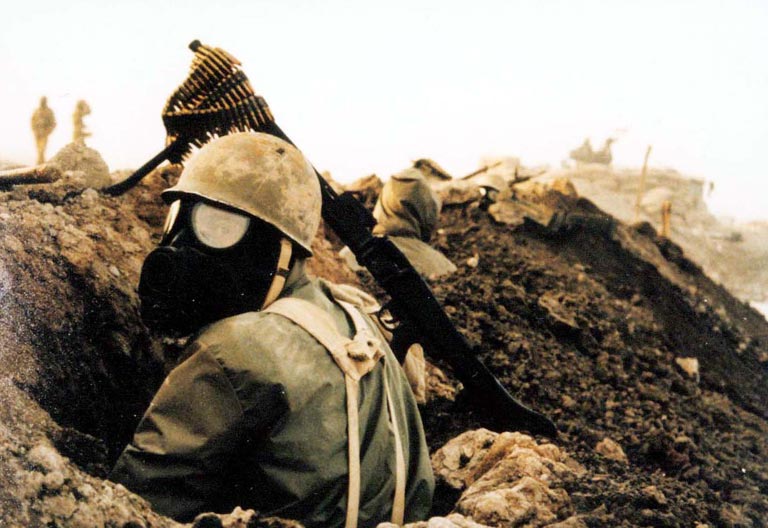Asia
Chemical weapons used in Syria again

Image: Wikipedia
Reports emerged this week stating that chemical weapons have once again been used in Syria’s civil war. An aid agency working in the region reported that barrels of chlorine gas had been dropped by helicopter on the small Syrian town of Saraqeb, which is located in rebel-held territory. Al Jazeera is reporting that five makeshift gas bombs dropped on the city have resulted in more than thirty casualties, mostly among women and children.
Chlorine is suspected as the likely chemical agent used due to the nature of their injuries which include suffocation and irritated eyes, both signs of chlorine gas.
Saqareb is located just fifteen kilometers away from the location where a Russian helicopter was shot down last year, resulting in the largest number of Russian combat deaths throughout the course of the conflict so far. This has some observers wondering if the attack is a response to that incident, though the Kremlin is denying that any gas attack even occurred.
Unfortunately, the idea that these reports are false flies in the face of what we know about the use of chemical weapons by the Assad government. Simply put, this is not the first time this has happened. And in fact, just last month a similar attack occurred in the same area.
The Assad regime has been using chemical weapons since almost the beginning of the conflict back in 2013 when a Sarin gas attack killed almost 500 people in the rebel-held town of Ghouta. As a result, the US Senate even introduced a bill to authorize the use of military force against Syria if chemical weapon attacks continued. President Obama even famously declared the use of chemical weapons a “Red Line” that was not to be crossed by the Assad Regime.
And as you may remember, when Assad promptly crossed that line a year later, killing almost 1,500 with a Sarin attack in Damascus, it was instead the U.S. that backed away.
Until that point, there was some debate over whether Assad had actually used chemical weapons, with Assad and allies arguing that he did not even possess the types of chemicals necessary for gas attacks, though the U.S. argued that Syria possessed and, still does possess, some of the largest reserves of chemical weapons in the world.
Those reserves later became an even greater cause for alarm when it was revealed that IS militants had actually seized several tons of nerve gas.
Chemical weapons date back before the first World War, though that was the moment when they were first used against other people on a field of battle. In 1915, chlorine gas, the kind used at Saraqeb, was released by the German Army at Ypres. Though at first the results were inconclusive due to wind patterns, gradually chemical weapons became an omnipresent aspect of any World War I battle.
The images this produced of men choking to death from chlorine gas, which attacks the lungs, producing so much fluid in them that one literally drowns, were so horrible that following the conflict, nations banned their use.
Of course, this had little bearing on their development or stockpiling, and gas would be used several more times in war, most recently in the war between Iraq and Iran.

Image: National interest
That brings up to the present day when the Assad regime has been utilizing this hundred-year-old invention to target innocent civilians living in territories occupied by opponents of the regime. The campaign of terror has been ongoing since 2013, with more than 160 attacks with chemical weapons being reported.
Assad’s forces primarily use two forms of gas: chlorine, and the deadlier sarin gas. Whereas chlorine causes death by destruction of lung tissue, sarin attacks the nervous system, causing the muscles which control the lungs to stop functioning. Death can occur in as little as one minute after exposure to sarin.
Both gases have been used extensively throughout the conflict, with no signs of an end to attacks anytime soon.
International response continues to be muted, with most of the international community limiting its response to investigations into the incidents. Of course, it must seem horribly perverse for a victim of a gas attack in Syria to hear that the international community is still trying to determine if the thing that just killed your entire family was gas or not.





0 comments